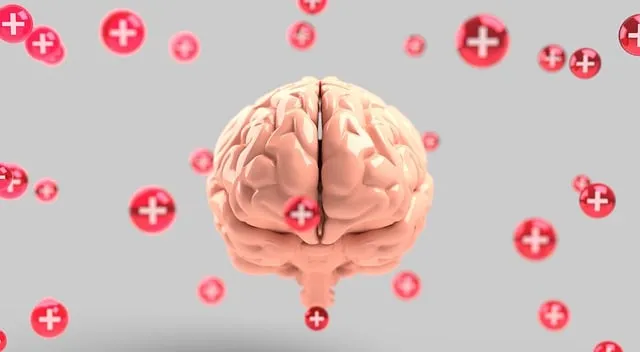The Kaiser Permanente Mental Health Access Center in Lone Tree emphasizes the importance of coping skills for managing life's challenges and maintaining mental wellness. Through programs focusing on mindfulness, stress reduction, communication skills, and emotional intelligence development, individuals gain practical tools to cope with stress, adversity, and everyday stressors. Tailored Trauma Support Services and Empathy Building Strategies empower people to promote their own mental wellness and build resilience through creative outlets, physical activity, nature, and deeper connections with others. Integrating these techniques can significantly enhance well-being, reducing anxiety and fostering emotional resilience.
Coping skills are essential tools for navigating life’s challenges and maintaining mental well-being. In today’s fast-paced world, stress and anxiety are prevalent, making the development of effective coping strategies crucial. This article explores various aspects of coping skills development, offering insights into how individuals can enhance their resilience. We delve into the significance of these skills and highlight the role of organizations like Kaiser Permanente Mental Health Access Center Lone Tree in promoting healthy coping mechanisms. Learn practical techniques to identify personal resources and integrate stress-reducing strategies into your daily routine.
- Understanding Coping Skills and Their Significance
- The Role of Kaiser Permanente Mental Health Access Center Lone Tree in Promoting Coping Strategies
- Identifying Personal Coping Mechanisms and Resources
- Developing Effective Coping Skills for Stress Management
- Integrating Coping Techniques into Daily Life: Tips from the Experts
Understanding Coping Skills and Their Significance

Coping skills are essential tools for navigating life’s challenges and maintaining mental wellness. According to the Kaiser Permanente Mental Health Access Center in Lone Tree, these skills enable individuals to manage stress, overcome adversity, and promote overall well-being. Understanding coping mechanisms is crucial as they play a significant role in an individual’s ability to cope with difficult situations, whether it’s dealing with trauma or simply managing everyday stressors.
The Kaiser Permanente center emphasizes that developing effective coping strategies can lead to improved mental health awareness and resilience. Mental wellness coaching programs and trauma support services are valuable resources designed to teach individuals various techniques, such as mindfulness, stress reduction practices, and healthy communication strategies. By equipping people with these skills, they become better equipped to handle life’s ups and downs, fostering a sense of control and empowerment over their mental health.
The Role of Kaiser Permanente Mental Health Access Center Lone Tree in Promoting Coping Strategies

The Kaiser Permanente Mental Health Access Center Lone Tree plays a pivotal role in promoting coping strategies for individuals seeking mental well-being. This center offers comprehensive resources and support, recognizing that effective coping skills are essential for managing stress and adversity. Through various programs, they empower individuals to develop resilience and healthy coping mechanisms.
One of their key contributions is providing education on communication strategies, which are vital for expressing emotions and building strong relationships. Additionally, the center facilitates social skills training, enabling participants to enhance their interpersonal interactions and create a supportive network. By combining these approaches with emotional intelligence development, Kaiser Permanente equips individuals with practical tools to navigate challenging situations, fostering improved mental health and overall well-being.
Identifying Personal Coping Mechanisms and Resources

Many individuals go through life without ever considering their personal coping mechanisms until a stressful event or challenging situation arises. The first step in developing effective coping skills is self-awareness—identifying what makes you feel safe, secure, and supported. This could involve introspection to understand your emotional triggers and the behaviors that help you regulate your emotions. For instance, some people find solace in creative outlets like art or music, while others might turn to physical activity or spending time in nature.
The Kaiser Permanente Mental Health Access Center in Lone Tree emphasizes the importance of recognizing these personal resources. They offer Trauma Support Services tailored to help individuals navigate and overcome traumatic experiences. Empathy Building Strategies are also a crucial part of their program, teaching people to connect with others on a deeper level, fostering understanding and support networks. By identifying and harnessing these mechanisms, individuals can better manage stress, promote mental wellness, and build resilience.
Developing Effective Coping Skills for Stress Management

Developing effective coping skills is essential for managing stress and promoting overall well-being, as highlighted by experts at the Kaiser Permanente Mental Health Access Center in Lone Tree. This process involves learning to recognize and accept one’s emotions, along with adopting healthy strategies to navigate challenging situations. At the core of stress management are practices like mindfulness, meditation, and deep breathing exercises, which have been shown to reduce anxiety and enhance emotional resilience.
Cultural sensitivity in mental healthcare practice plays a crucial role in effective coping skill development. Understanding and incorporating compassion cultivation practices, such as active listening and empathy, can create a safe space for individuals from diverse backgrounds to express their experiences. Emotional intelligence, the ability to recognize and manage one’s own emotions as well as understand others’ feelings, is another valuable tool that fosters effective communication and strengthens the therapeutic relationship.
Integrating Coping Techniques into Daily Life: Tips from the Experts

Integrating effective coping techniques into your daily routine can significantly enhance mental well-being, as highlighted by experts from the Kaiser Permanente Mental Health Access Center in Lone Tree. This center emphasizes that a balanced approach to stress management involves a combination of strategies tailored to individual needs. One powerful tool is mindfulness meditation, which encourages staying present and observing thoughts without judgment. Regular practice of mindfulness can reduce anxiety and improve overall emotional resilience.
Additionally, self-awareness exercises play a crucial role in coping skill development. By taking time for introspection, individuals can better understand their triggers and emotional patterns. This self-reflection allows for proactive risk management planning, especially for mental health professionals who face unique challenges on the job. Incorporating these practices into daily life not only fosters personal growth but also enables individuals to navigate stress and adversity more effectively.
Coping skills, such as those promoted by the Kaiser Permanente Mental Health Access Center Lone Tree, are essential tools for managing stress and improving overall well-being. By understanding personal coping mechanisms and integrating effective strategies into daily life, individuals can enhance their resilience and navigate life’s challenges with greater ease. The resources and techniques shared by experts in this article empower folks to take charge of their mental health and foster a more balanced and fulfilling life, all accessible through the support of centers like Kaiser Permanente Mental Health Access Center Lone Tree.






